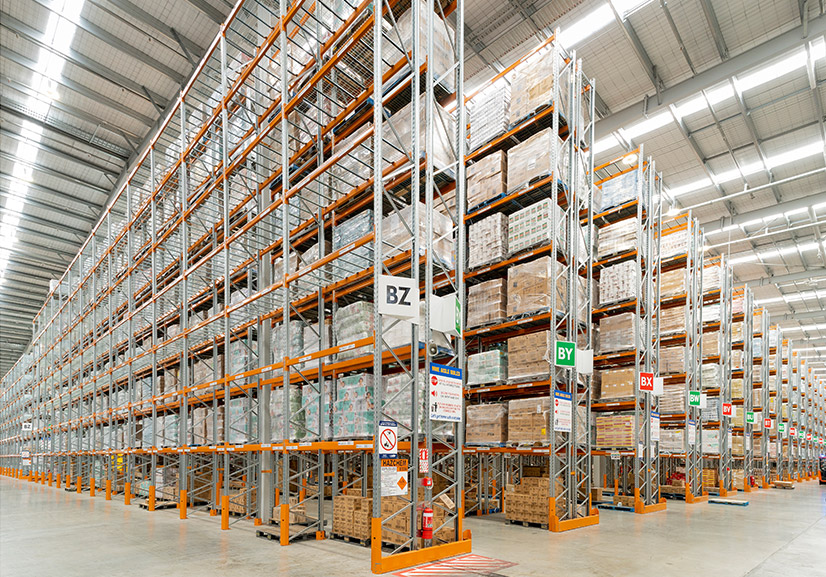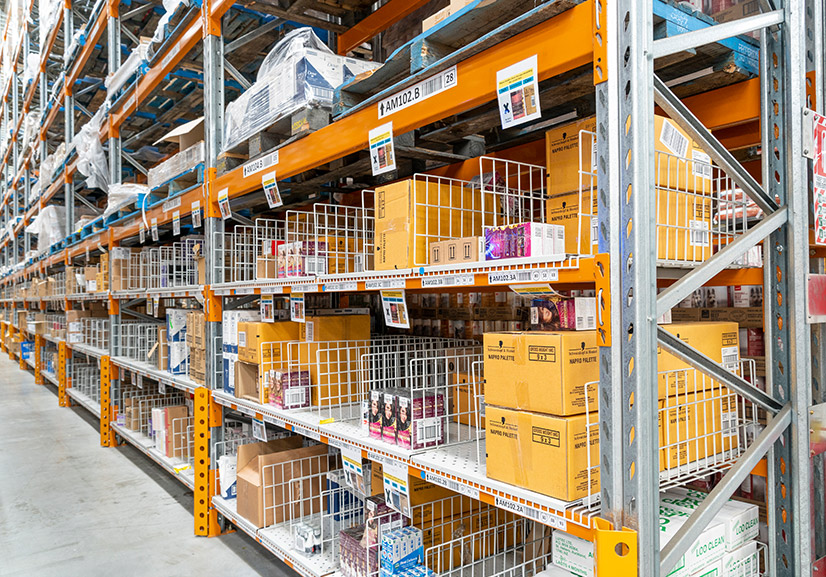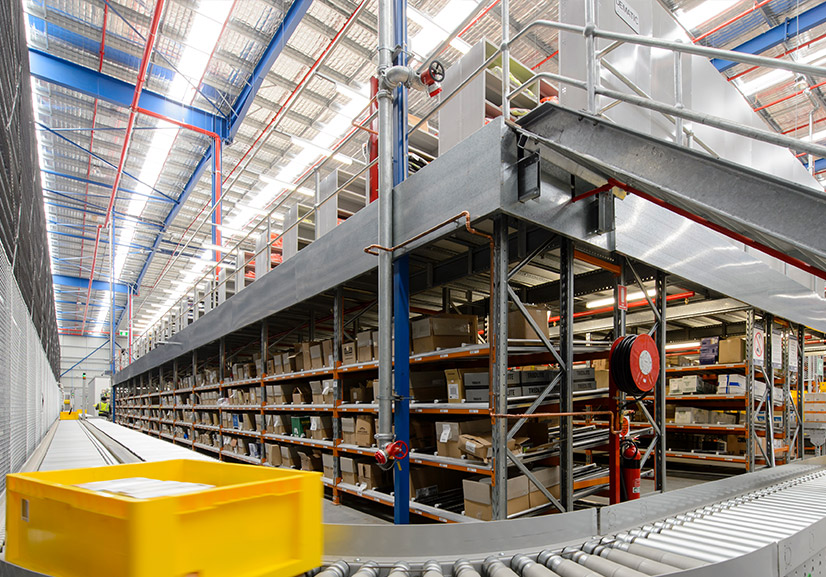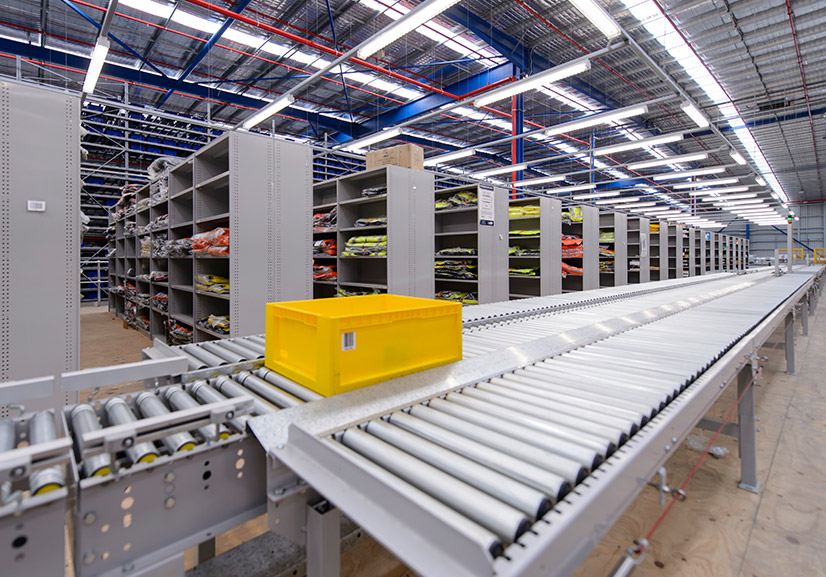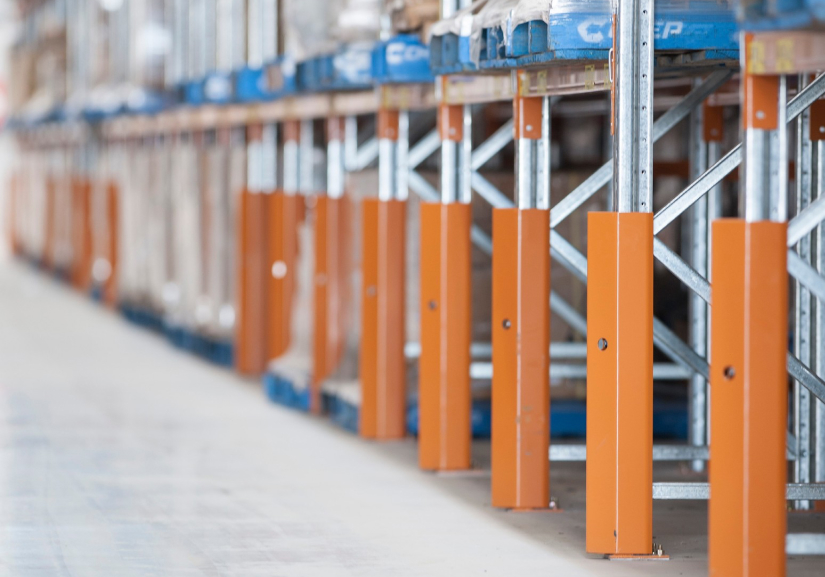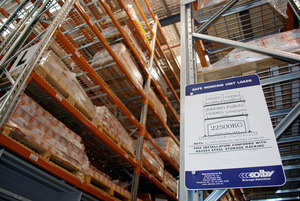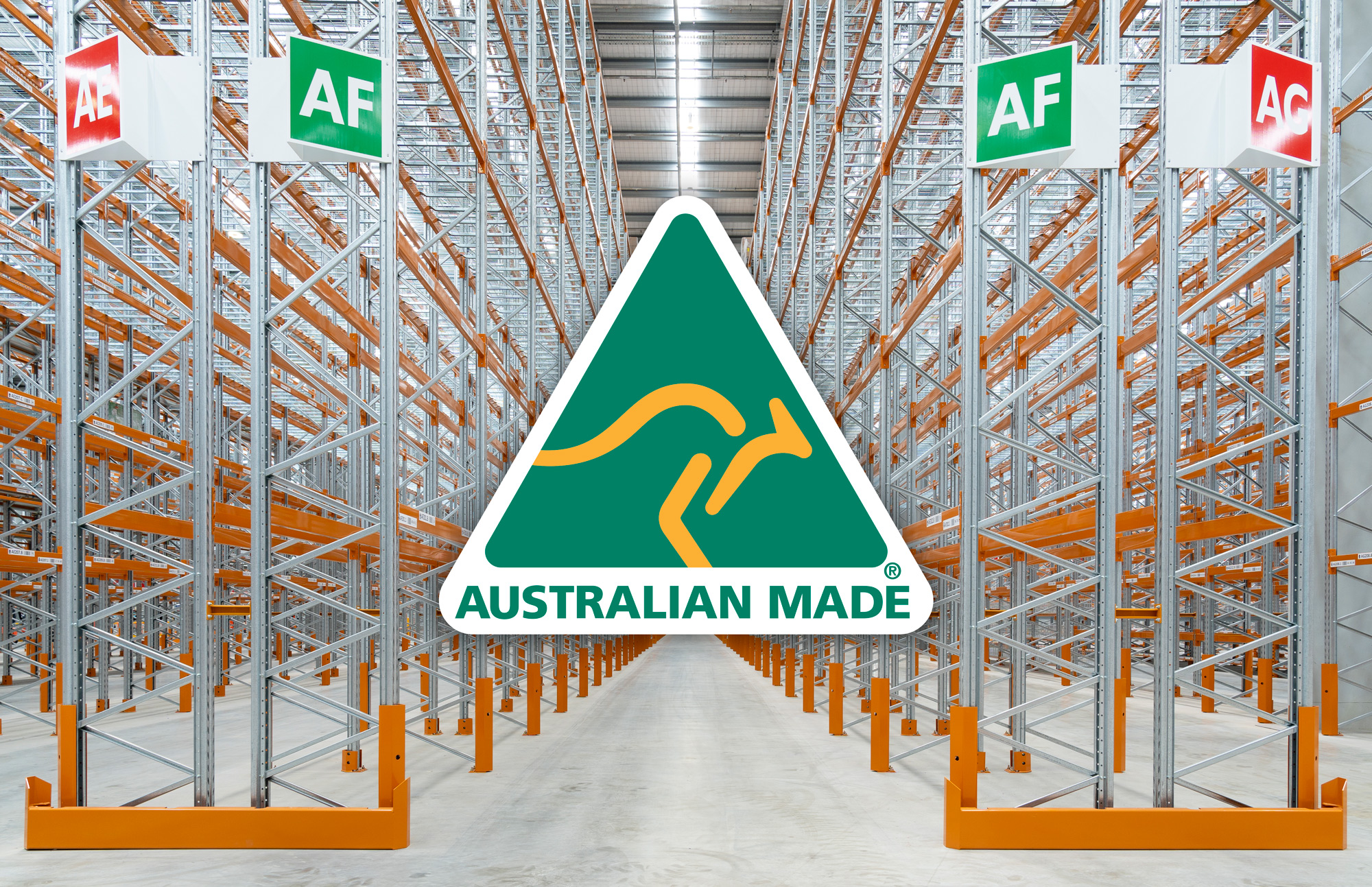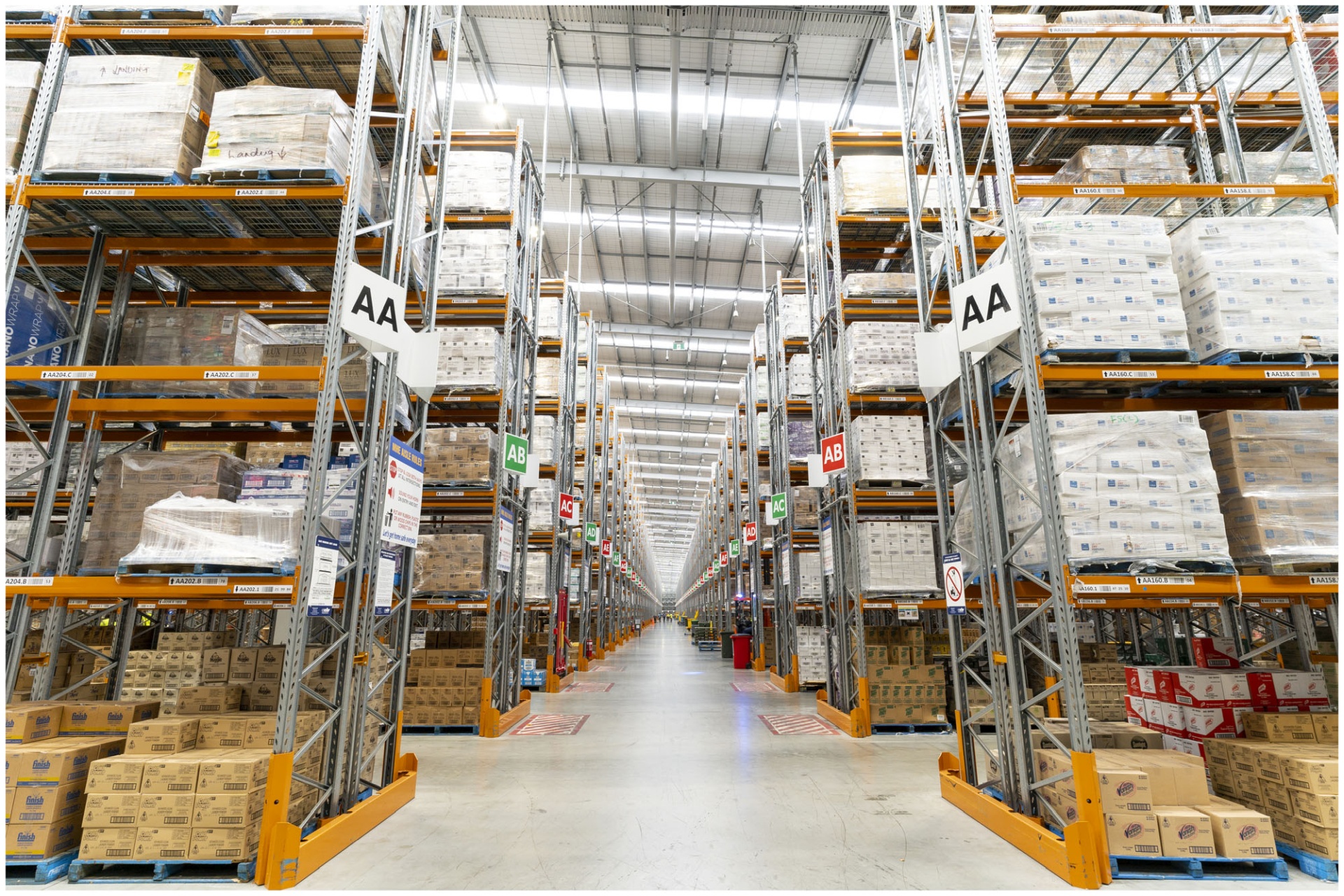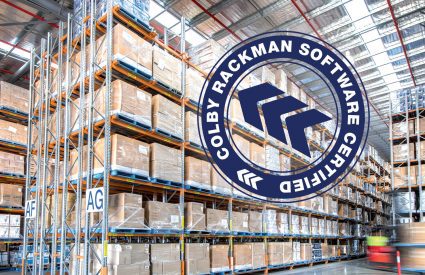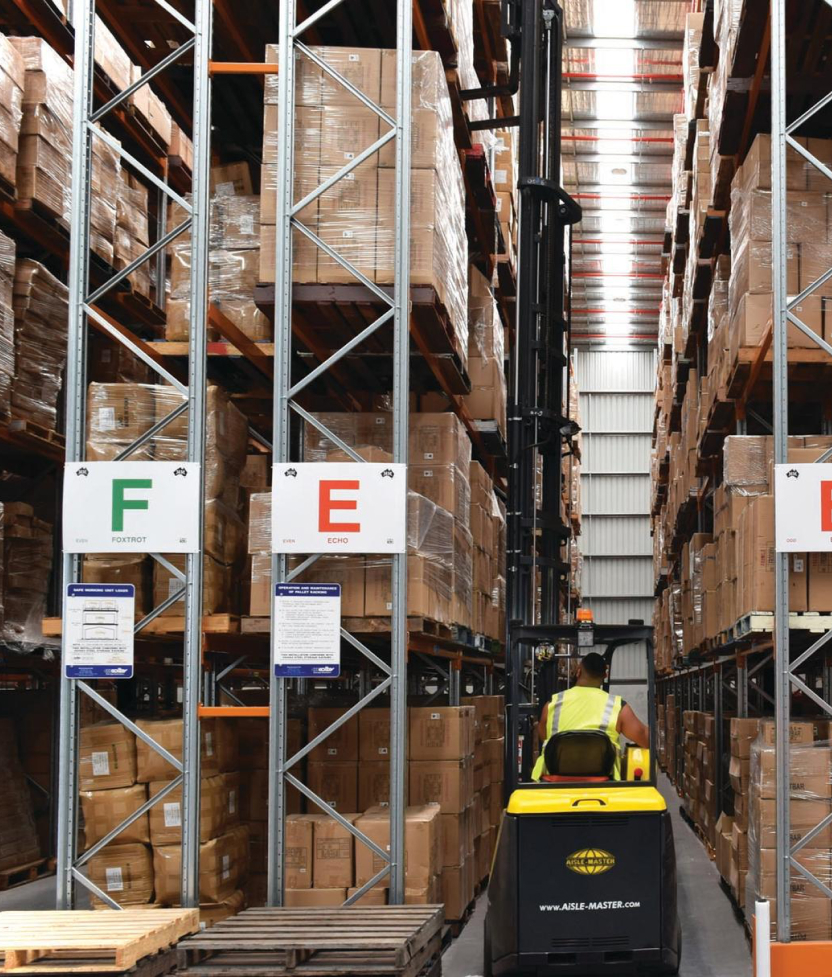The need for quality racking in Australian warehouses
Author: Dr Murray Clarke, Structural Engineering Manager, Dematic.
The availability of imported “brand-compatible” racking in the Australian marketplace has increased over recent years. There is no shortage of statements and certificates from the manufacturers and suppliers claiming adherence to Australian and international standards. In some instances, published frame load capacities have been proven to significantly overstate the true capacities. These are serious concerns for the industry.
It is apparent that some companies importing and selling brand-compatible racking have an extremely low level of knowledge of racking design and standards. It is therefore important to work with a reputable racking manufacturer that has a detailed knowledge of racking design and safety, gained from decades of experience and involvement with standards bodies, and programs of structural testing.
It is also essential that companies considering purchasing imported racking are mindful of their duty of care obligation. Should the equipment fail during use, the health and safety of your workers could be at risk, and the potential legal ramifications extremely serious.
Some things just don’t stack up

In response to market concerns about the structural adequacy and safety of imported brand-compatible racking, Dematic, the maker of ColbyRACK, carried out independent structural testing on a range of imported rack components. Dematic incorporated the test data into computer models to correctly assess the load carrying capacity of the racks, which were then compared to the published values.
The results of the calculations indicate the equipment may be considerably under-designed for Australian applications. The degree of under design varies according to the configuration but it has been confirmed to be as high as 30%. Such a rack would be in serious danger of collapse in the event of an accidental overload or damage caused by forklift impact, and therefore poses a significant occupational health and safety risk.
There are several possible explanations for the unsafe designs uncovered by our investigations. The racks investigated were made from low strength steel (nominal yield stress of 235 MPa). By contrast, in Australia, racking is typically made from high-tensile galvanised steel with a nominal yield stress of 450 MPa. This difference in steel grade means that an upright or beam made from lower grade steel will fail long before a component of identical thickness made from Grade 450 high-tensile steel. Rack importers may try to dodge the issue of the lower steel grade by claiming they are using thicker, heavier components and claim this enables their lower grade steel products to conform to Australian Standards. Our investigations show this is generally not the case.
Another possible reason for the poor design integrity of imported brand-compatible racking is that the companies may not appreciate the crucial importance of the beam-to-upright connection on the overall load carrying capacity of the system. Our investigations have revealed that the end connectors of certain imported racking are significantly more flexible and weaker than ColbyRACK end connectors. It is possible that the stiffness and strength of the end connector is not properly accounted for in the design procedures adopted by companies manufacturing and selling imported brand-compatible racking.
One of the major concerns with sub-standard, brand-compatible racking is the issue of product substitution. It is conceivable that a number of original branded components in a properly designed racking system could be replaced by imported brand-compatible components. While the brand-compatible components may look the same as the originals, it is unlikely they will be made from the same materials or be manufactured to the same standards. A rack structure derives its stability through the interaction of all the components, therefore mixing the weaker brand-compatible components with genuine components within a rack may compromise the structural integrity of the overall system. It is not feasible to provide structural certification of a rack that incorporates a mixture of branded and brand-compatible components.
Generic certificates claiming compliance with standards are worthless
We have seen various conformance certificates issued by companies distributing imported rack from Asia which claim the racking conforms to Australian Standard AS4084-2012 Steel Storage Racking. The simple fact of the matter is that such certificates on their own are worthless.
Compliance with AS4084-2012 is not just about meeting certain product characteristics. True compliance with standards requires the company to have carried out an extensive range of component tests, and to have a soundly based structural design methodology (often encapsulated in advanced software programs like Colby Rackman), which enables the interaction between all the components in a racking system to be properly assessed. Design adequacy can only be quantified in relation to the weights of the pallets stored in the racking – a rack of a given configuration might be adequately designed for 500kg pallets, but grossly under designed for 1000kg pallets.
Integrating quality in manufacturing
With more than 50 years’ experience, Dematic offers safe and proven storage solutions for hundreds of applications across a wide range of industries.
ColbyRACK is manufactured by Dematic at an advanced production facility in Sydney, incorporating the latest innovations in roll-forming, punching, painting and welding technologies. Extensive testing of Colby storage products ensures world-class quality, long-life performance and the lowest lifecycle cost.
ISO9001 Quality Assured automated manufacturing processes, using only quality certified steel with full traceability, ensure high-quality, repeatability, and low product cost.
Professional warehouses need professional racking
The reality is that pallet racking and other types of industrial storage systems are very complex structures that need to be professionally designed to suit the application. Given the potential for serious accidents to occur if sub-standard rack components find their way into an existing rack structure, we would caution anyone against purchasing such equipment for this purpose.
If you are considering purchasing imported racking, our advice would be to seek independent structural engineering certification to ensure it fulfils your duty of care obligation and protects you from the potential legal ramifications should the equipment fail during use, putting the lives of your workers at risk.
For further information please get in touch today
LEARN MORE ABOUT STORAGE SAFETY
- The article was originally published on 30 May 2016


 1800 984 873
1800 984 873 